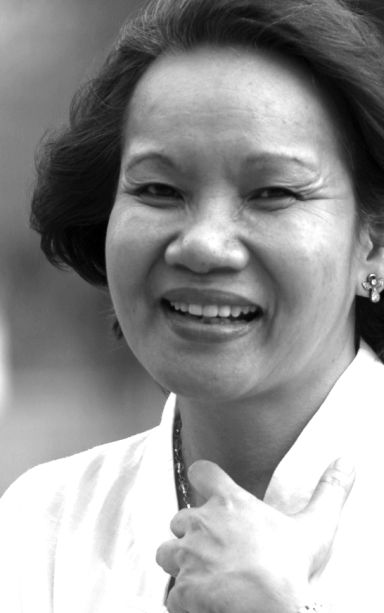
LOGARTA
Sidlak, Region VII Gender Resource Center, clarified the National Women’s Month Celebration theme: “WE Make Change Work for Women” to its members: representatives from the government agencies, non-government organizations and the academe. “WE stands for Women Empowerment.”
This “enables them to confidently and meaningfully engage with appropriate institutions to ensure that they contribute to and benefit from development and changes. Women’s empowerment will make the change that we are espousing or any development effort responsive to women’s concerns.”
WE “emphasizes our collective effort, collaboration and participation to ensure that women will not be left behind in the pursuit of change. This also stresses that “women should be active drivers in bringing about positive changes; and that they should also reap from development efforts.”
Make Change Work = MCW = Magna Carta of Women “Making change work for women necessitates strengthening the implementation of the MCW.
Functional mechanisms must be put in place; citizens must be informed regarding the programs and services that address strategic gender needs of women.”
CHANGE stands for “Compassionate and Harmonized Actions and Networks for Gender Equality.”
The Agenda Ni Juana Crowdsourcing Survey revealed that women considered as a priority: “Improved information dissemination on government programs and services for realizing equality and the empowerment of all women and girls.”
So this women’s month, it is hoped that more women will be informed and involved in promoting “citizen-centric governance”; “platforms to discuss good practices, gaps, challenges, and commitments in pursuing gender and development will be facilitated”; so that women and girls “will be inspired and empowered to be agents of change.”
For these objectives, the following activities have been proposed: “production and distribution of IEC materials”; government agencies and local government units have been encouraged to prepare their own materials “featuring their GAD programs and services that can be accessed by women.”
Reports on accomplishments should respond to: “How does the agency/LGU make change work for women? What are programs and services that can be accessed by women clients? The benefits received by citizens should be showcased. The use of local languages has been encouraged.”
“Serbisyo Para kay Juana” — the Philippine Commission on Women “enjoins government agencies, local government units, and other organizations to make available services and treats for women on March 8, International Women’s Day.”
History shows that developments marginalized women; the local midwife was marginalized by the modernization of medicine. Until recently, women’s crafts and unique food preparation skills have been pushed to the periphery. We commit ourselves to vigilance that ensures that the talents and needs of women will always be part of the consideration as our nation progresses technologically.
Disclaimer: The comments uploaded on this site do not necessarily represent or reflect the views of management and owner of Cebudailynews. We reserve the right to exclude comments that we deem to be inconsistent with our editorial standards.
